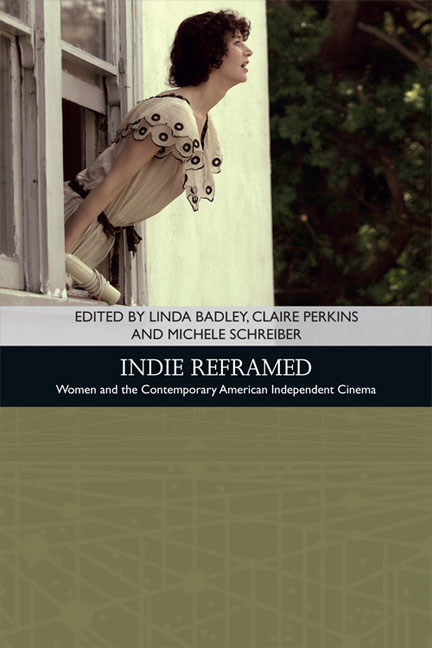4 - Susan Seidelman’s Contemporary Films: The Feminist Art of Selfreinvention in a Changing Technological Landscape
Published online by Cambridge University Press: 10 November 2020
Summary
The renaissance of American, quasi-indie cinema in the 1990s – an era that ushered in young mavericks like Kevin Smith, Quentin Tarantino, Robert Rodriguez, and David O. Russell – often overshadows the 1980s wave that preceded it: a vibrant, flourishing spell of activity for independent women filmmakers. From approximately 1982 to 1992, numerous institutional, political, economic, and cultural forces aligned, creating a climate in which selfidentified feminists such as Lizzie Borden, Joyce Chopra, Martha Coolidge, Julie Dash, Donna Deitch, Lisa Gottleib, Nancy Savoca, and Susan Seidelman enjoyed remarkable critical and festival circuit success.
These filmmakers were the progeny of second-wave feminism, having embraced progressive (Marxist, radical, progressive, liberal, humanist) politics. This was not a perfect environment, informed as it was by white, middle- class feminism. It excluded many women of colour; lesbians, bisexuals, and transgender individuals; and those lacking in financial or educational resources. It was not free of corporate, economic, or political considerations. But it was a powerful moment in American film history, nonetheless.
Many contextual factors bred the conditions for such a successful wave of 1980s feminist independent cinema: robust funding by government sources (e.g., NEH, NEA) as well as public and private foundations; film collectives; a still-thriving public television network; emerging festivals and marketplaces; investment tax structures; grassroots connections; independent reviewers; an entire apparatus for non-commercial exhibition (through libraries, galleries, museums, schools, and underground spaces), not to mention a growing appetite for feminist films within mass culture.
Seidelman's debut feature (Smithereens, 1982) was the first American independent film to be invited to enter the competition at Cannes. Borden's second feature (Working Girls, 1985) premiered at Cannes in the Directors’ Fortnight and won the Special Jury Prize at Sundance. Deitch's narrative turn, Desert Hearts, took top prizes at Sundance, Toronto, and the Independent Spirit Awards, and was picked up for distribution by the Samuel Goldwyn Company. Savoca's initial feature (True Love, 1989) won the Grand Jury Prize at Sundance. Dash's Daughters of the Dust (1991) was funded by American Playhouse and aired nationally on PBS. There was promise in the air.
- Type
- Chapter
- Information
- Indie ReframedWomen's Filmmaking and Contemporary American Independent Cinema, pp. 70 - 86Publisher: Edinburgh University PressPrint publication year: 2017



